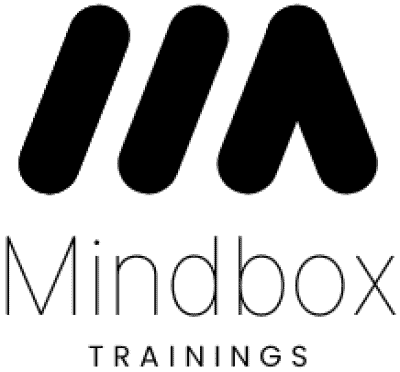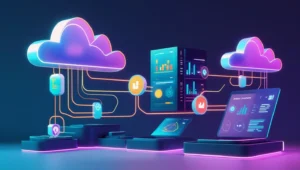I’ve been helping people switch into Data Engineering for a while now — some from QA, others from totally non-tech backgrounds. And here’s the truth: you don’t need to be a genius or have a CS degree to get in. What you do need is a focused plan, good mentorship, and hands-on practice. This post gives you exactly that — no fluff.
In 2025, data engineering is not just a buzzword—it’s one of the most in-demand and rewarding career paths in tech. If you’ve ever wondered how companies like Google, Netflix, and Amazon manage billions of records daily or build intelligent products in real time, the answer lies in the work of data engineers. This guide will walk you through everything you need to know to become a successful data engineer—from the mindset to the toolset, in a language that feels real, approachable, and motivating.
Who is a Data Engineer?
Think of data engineers as the builders and plumbers of the data world. They design and maintain the pipelines that allow data to flow from multiple sources to destinations like data lakes, warehouses, and dashboards. Without them, data scientists and analysts would be stuck with messy or incomplete data.
They work with tools like Python, SQL, Apache Spark, and cloud platforms like AWS, GCP, or Azure to make data usable, scalable, and reliable.
Step-by-Step Roadmap to Become a Data Engineer
Step 1: Build the Right Mindset
Start by understanding that data engineering is a mix of software engineering and analytical thinking. You’re not just writing code—you’re solving real problems.
- Be ready to handle ambiguity
- Learn how to work with incomplete data
- Get used to continuous learning
Step 2: Master the Fundamentals
Before jumping into tools, master the basics:
- SQL: Your bread and butter. Learn to write complex queries.
- Python: For scripting and data manipulation
- Data Structures and Algorithms: To handle data efficiently
Step 3: Learn Databases and Warehousing
- Relational DBs: MySQL, PostgreSQL
- NoSQL: MongoDB, Cassandra
- Cloud data warehouses: BigQuery, Snowflake, Redshift
Step 4: Understand Data Modeling
Learn how to design tables and schemas based on business needs:
- Star Schema
- Snowflake Schema
- Normalization & Denormalization
Step 5: Dive into ETL and ELT
Understand how to build data pipelines:
- Tools: Apache Airflow, dbt, Talend
- Batch vs Streaming: Learn Kafka, Spark Streaming, etc.
Step 6: Learn Cloud Platforms
Most data infra is now in the cloud. Learn at least one:
- AWS: S3, Redshift, Glue, Lambda
- GCP: BigQuery, Dataflow, Cloud Functions
- Azure: Data Factory, Synapse
Step 7: Version Control, CI/CD, and DevOps Basics
Git is non-negotiable. Learn the basics of CI/CD pipelines using Jenkins or GitHub Actions. Infrastructure as Code with Terraform is a huge plus.
Step 8: Work on Real Projects
- Build your own data pipeline project
- Contribute to open-source
- Work with real-time datasets like NYC taxi data or Covid datasets
🧰 Must-Know Tools for 2025
- Languages: Python, SQL, Bash
- Frameworks: Apache Airflow, Spark, Kafka
- Databases: PostgreSQL, BigQuery, Snowflake
- Cloud: AWS, GCP, Azure
- Orchestration: Airflow, Dagster
- Version Control: Git, GitHub
📈 Career Advice
- Start Small: Even if you’re not from a tech background, begin with basics like SQL and Excel. Many successful data engineers started as business analysts.
- Certifications Help: Look at Google Data Engineer or AWS Data Analytics certs.
- Network Actively: LinkedIn, GitHub, and Discord groups are goldmines.
- Mock Interviews: Practice regularly, especially system design and SQL-based problems.
🚀 Bonus Tip: Don’t Learn in Isolation
Join a bootcamp, online cohort, or mentor-driven community like Mindbox Trainings. Our Data Engineering Bootcamp is built exactly for this purpose—to take you from zero to job-ready in just weeks.
Final Thoughts
Data engineering is more than just writing code—it’s about creating the backbone of decision-making in modern companies. Whether you’re a fresher, switching careers, or already working in tech, 2025 is a great time to make the leap.
Stay consistent. Stay curious. Build things. And most importantly—don’t give up.
Your future as a Data Engineer starts today.
🌐 Bonus: Stay Updated and Keep Learning
Understanding Data Engineering
Fundamentals (Python & SQL)
Tool Deep Dives
Free End-to-End Data Engineering Course
Interview Preparation
Communities & Blogs
Mentored Bootcamp by Mindbox Trainings
FAQs
What does a data engineer do in 2025?
A data engineer in 2025 is responsible for building, managing, and scaling data pipelines that support analytics, machine learning, and business intelligence. The role also includes working with cloud infrastructure, real-time data processing, and ensuring data quality across platforms.
Is data engineering a good career in 2025?
Absolutely. With the explosive growth of data-driven businesses, data engineering is one of the most in-demand and future-proof tech careers. Salaries are high, job roles are expanding globally, and companies across all domains are hiring.
Do I need a computer science degree to become a data engineer?
No, a formal CS degree is not mandatory. Many successful data engineers come from non-traditional or self-taught backgrounds. What matters most is your hands-on experience with data tools, coding skills, and problem-solving mindset.
Which programming languages should I learn for data engineering?
Start with Python for scripting and automation, and SQL for querying databases. These are essential. Depending on your focus, you may also learn Scala or Java for working with big data frameworks like Apache Spark.
What tools should a beginner learn to get started in data engineering?
Some must-learn tools include:
- SQL (for querying)
- Airflow (for orchestration)
- dbt (for transformation)
- Kafka (for streaming)
- GCP / AWS / Azure (cloud platform of choice)
- BigQuery / Snowflake (data warehousing)
How long does it take to become a job-ready data engineer?
With focused effort, it takes around 3 to 6 months to become job-ready—especially if you’re already familiar with Python or basic cloud concepts. A structured bootcamp (like Mindbox Trainings) can speed up this timeline.
What’s the difference between a data engineer and a data scientist?
A data engineer builds the infrastructure (pipelines, storage, cloud systems), while a data scientist uses that infrastructure to analyze data and build models. Think of the engineer as the “builder” and the scientist as the “analyst.”
Do data engineers need to know machine learning?
It’s not mandatory, but understanding ML workflows can help you collaborate with data scientists. Knowing how to build data pipelines that support model training and deployment is a valuable bonus skill.
Where can I find a structured data engineering bootcamp in 2025?
You can explore Mindbox Trainings’ Data Engineering Bootcamp, a 5-week hands-on program with live sessions, real-world projects, interview prep, and mentorship.



